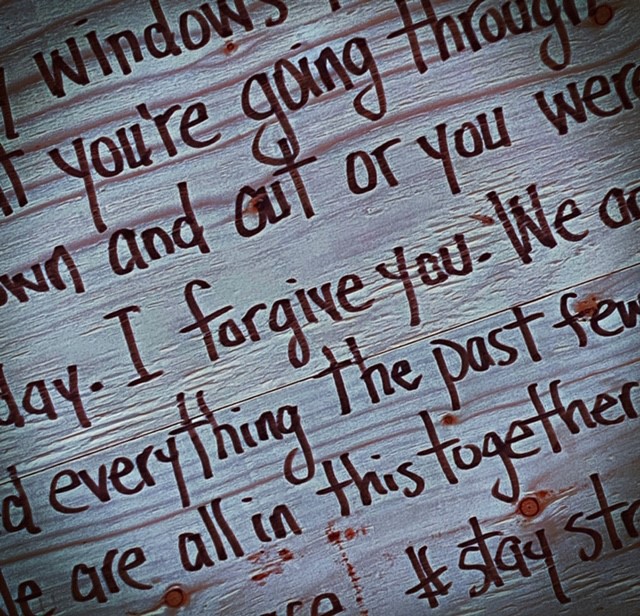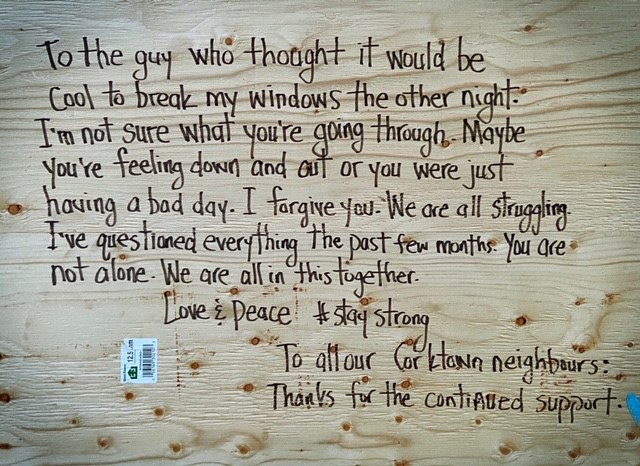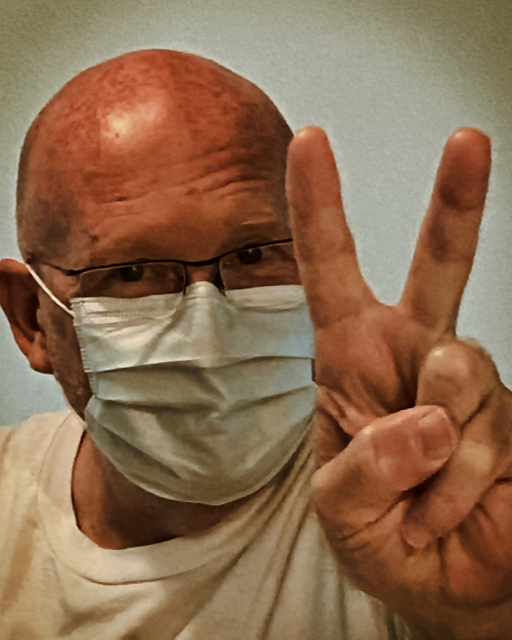
When the threat of COVID-19 took hold, my morning routine — like everything and everyone else — was disrupted.
Back then, most mornings (on days that allowed) when I woke, I would grab my laptop or journal and stumble down the street for coffee at my usual Starbucks. There are three Starbucks directly in my neighbourhood but I, generally, would chose the closest distance to caffeine.
Once there, often as the door is unlocked at 5:30 a.m., I would settle in with my deep dark roast and continue working whatever I’d been working on; some days a chapter, another day an essay or poem. Many times I’d absorb myself in my journal while the rest of the world woke up and the crowds converged on the coffee shop to pick up a fresh cup on their way to the office.
All that ended abruptly, mid-March, when this city shut down. Some restaurants and coffee shops remained open for take-out and delivery, but my usual spot closed.
I still needed my morning cup, so I’d walk a little further — to the one closeby Starbucks that remained open — pick up my coffee and then walk through the downtown.
Spring had finally settled in, so the temperature was mild and the coffee was warm, so I kept walking, usually well past the moment my cup ran dry. Some days I’d walk much further.
I wasn’t measuring my distance, nor was I really keeping track of the time. People on the street, in the early days of the pandemic, were few and far between on just about every street I traveled. Physical distance naturally happened.
There was no intended route or destination, most days, so at one point I stopped calling it a walk, and began referring to it as my morning “wander”.
I wandered for weeks, every day for hours; then months. It was near the end of May when I checked the pedometer on my iphone and was notified that I was close to doubling my steps May over April.
Little else was motivating me right then, but the step count inspired me to pick up the pace and go another block or two. That evening, I went out again to increase my daily average. I, really, wasn’t doing anything else.
Despite my efforts, I didn’t quite double my May steps, but I became motivated enough to pick up the pace for June. Purposely I was going a little further, still with coffee in hand, and checking my distance at the end of the wander. I began walking more through my day, I began looking for excuses to walk further. I selected ATMs at banks a longer distance from home. I found another coffee shop a little further away to get my first cup of the day. I could see by the last week of June that, at the pace I was going, I would surpass May. Then I had a couple of down days and had to push it hard to make up the mileage in the final few days.
I saw an increase in June. It wasn’t as large as May, but the red lines of the pedometer’s graph continued going up.
It was tougher in July.
The summer heat had arrived (our hottest on record), and I began getting up earlier, just to catch the morning’s milder temperatures. I’d wander further, my T-shirt sopping in sweat by the time I was home. I kept trying to push myself for more steps, both per day and per session.
Some days I couldn’t take it. Other times I’d make up for it the next day.
I knew I could do it. I had not only the will, but an app in my pocket letting me know how far I had come. I was checking my phone constantly, at times bargaining with myself, promising small rewards: a Popsicle when I arrived home, or a nap that afternoon. I was doing anything to stay motivated and keep stepping forward.
I reminded myself of an essay by humorist David Sedaris titled Stepping Out: Living The Fitbit Life’. The 2014 piece from the New Yorker (and you really should Google it) documents how a device pushed him well past the recommended daily minimum 10,000 steps. And how he kept going, obsessively.
“I look back on the days I averaged only thirty thousand steps, and think Honestly, how lazy can you get?,” Sedaris wrote.
For me, 10,000 steps was long ago, and I’m not close, at least not often, to a 30,000 step day. But I am walking like I’ll get there.
I’m not, not yet, obsessive about walking: I’m just doing it; every day and longer.
It’s funny because before this pandemic business set in, and I was looking for a mindful, physical outlet, I was thinking about stepping back on the yoga mat. There’s a studio almost across the street, and the hot yoga place is not much further than a distant coffee shop, so I was putting myself in the mood.
Then along came a coronavirus. No yoga, not then.
Walking is now was giving me a feeling I hadn’t felt for a while. I was actually stepping with the same daily commitment I had for yoga a few years back. This was feeling almost as good (and it was a lot cheaper), so I continue walking.
It’s been months now.
You can imagine how I pushed to get July’s steps up over June, and how – without really thinking of it – I set my intention on increasing my August daily step count up and above July (and I have for each of the past four days).
I’m even calling it walking now (if you haven’t noticed) instead of wandering. There is still no fixed destination, but there seems to be a greater purpose.





